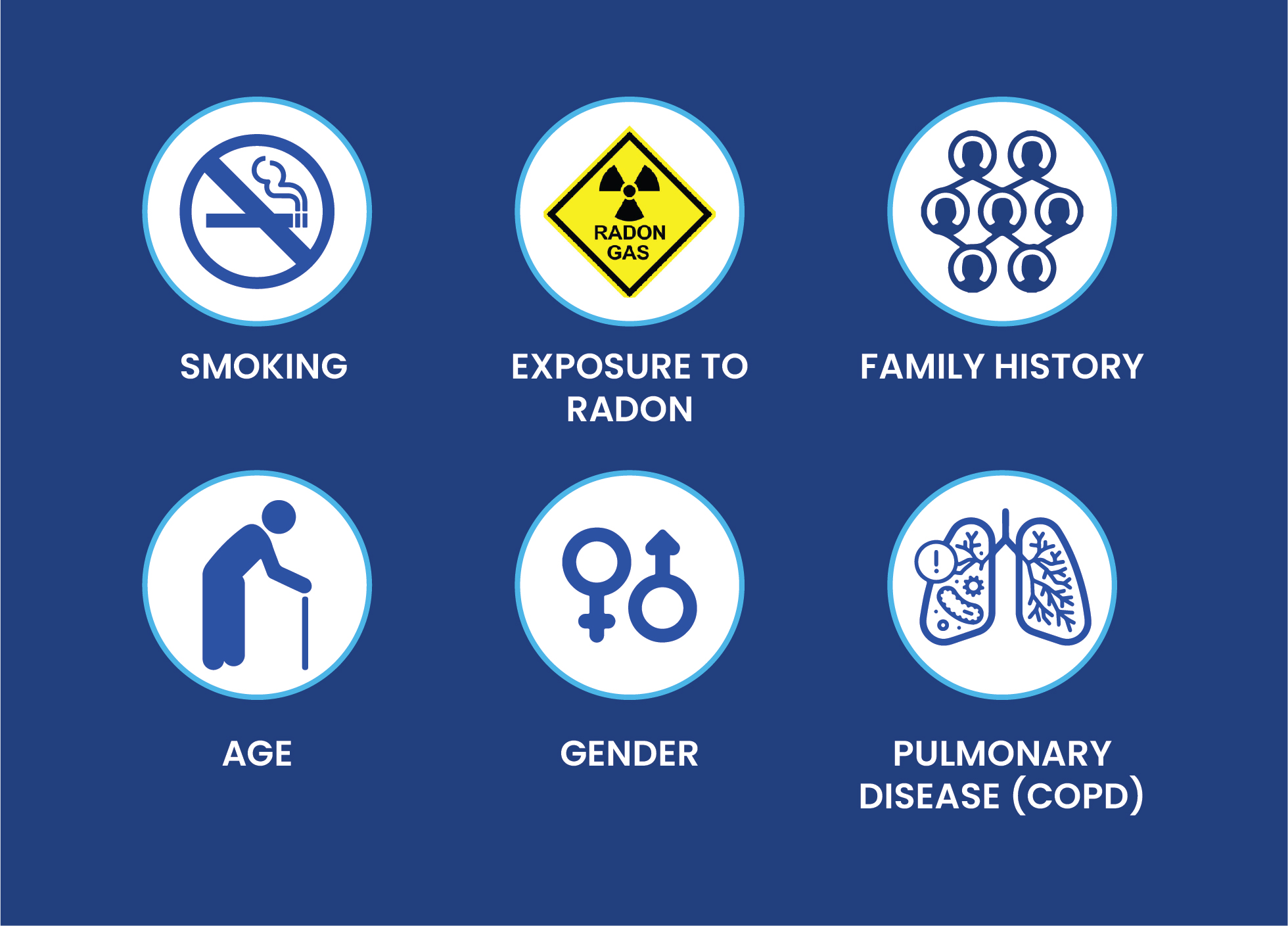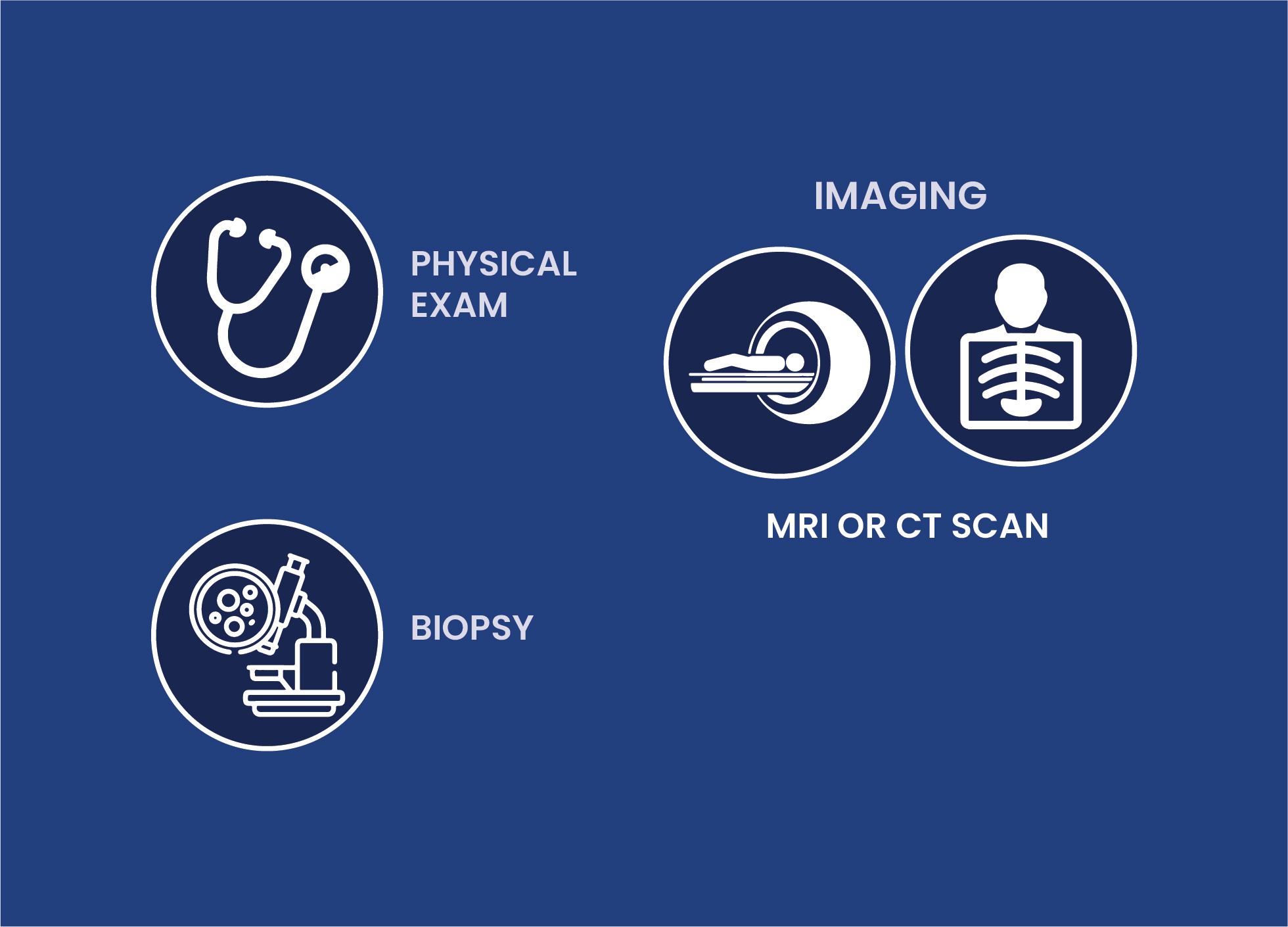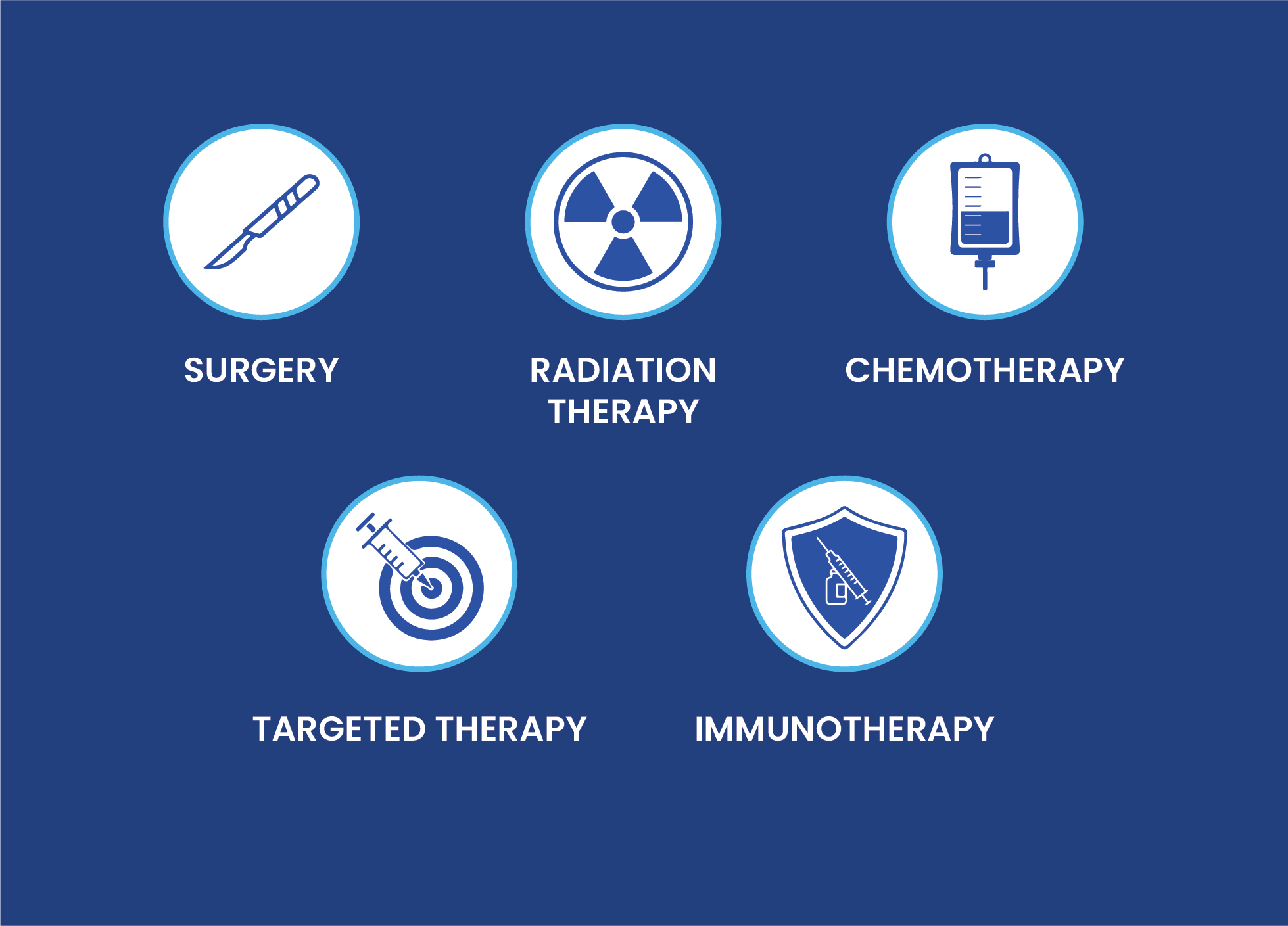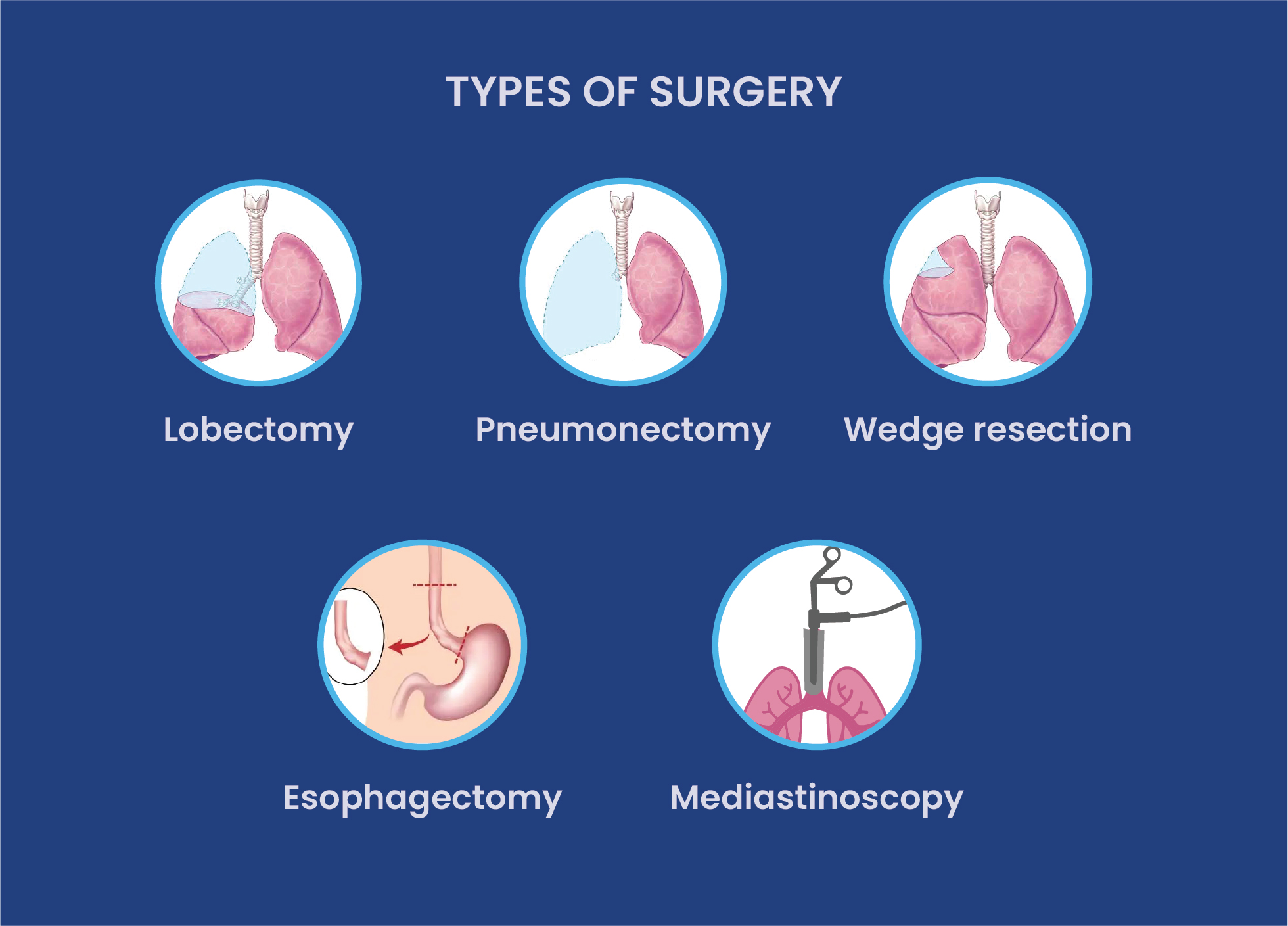Thoracic Cancer
Thoracic cancer refers to any cancer that occurs in the chest area. The most common types of thoracic cancer include lung cancer, esophageal cancer, and mesothelioma (a rare form of cancer that develops in the lining of the lungs, chest wall, or abdomen). Lung cancer is the most common type of thoracic cancer.
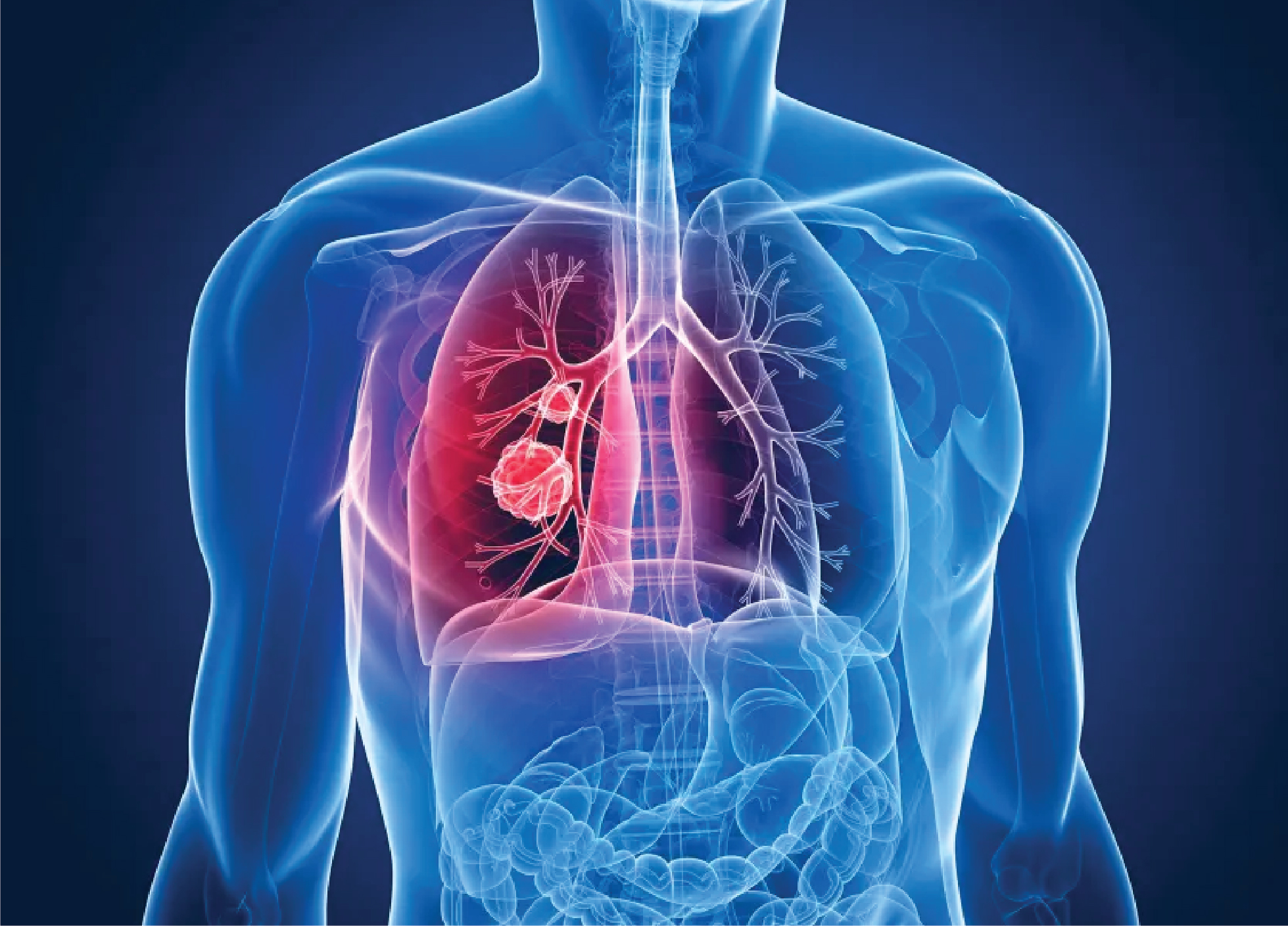
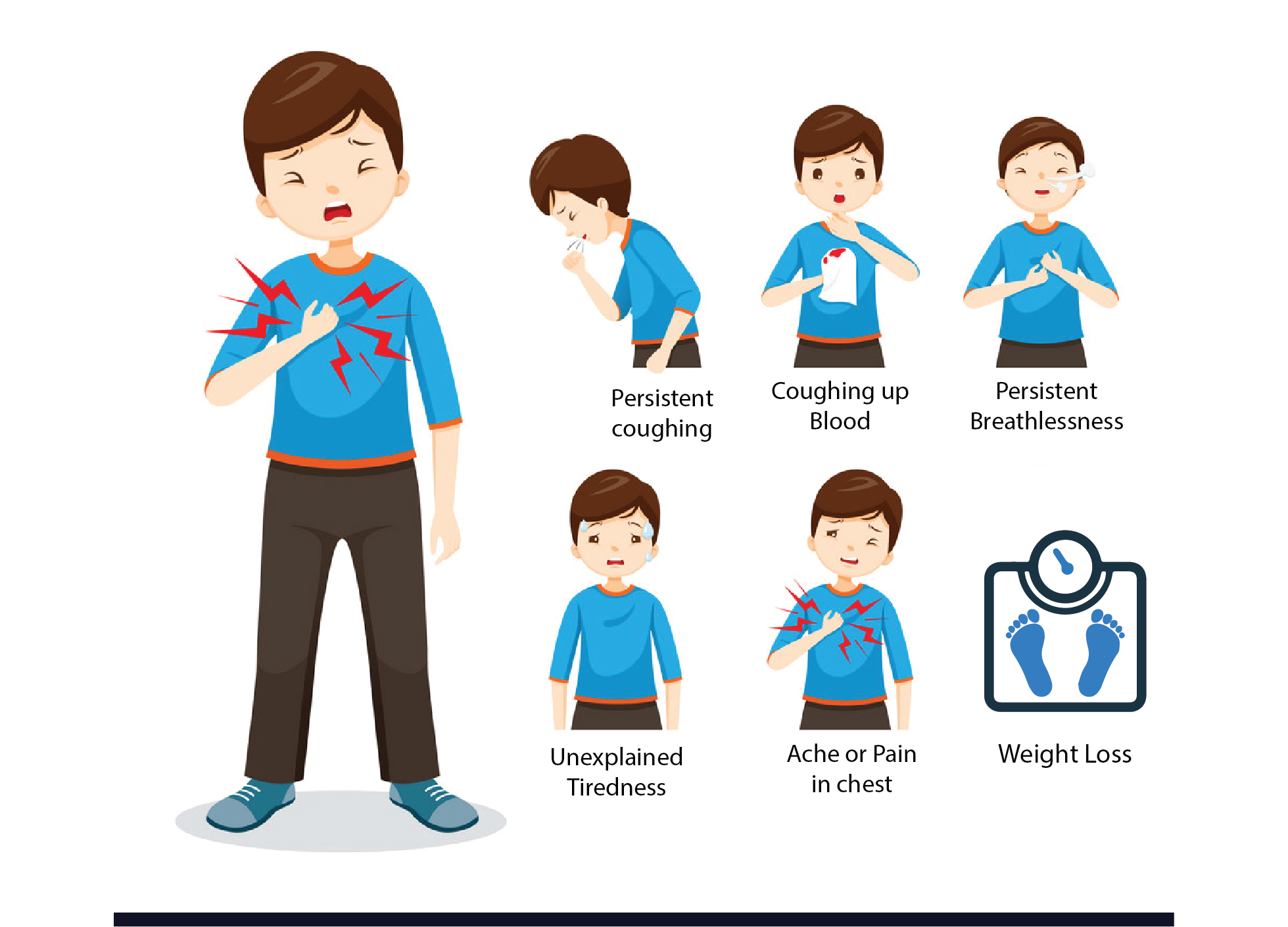
Symptoms
- Persistent coughing
- Chest pain
- Difficulty breathing
- Fatigue
- Weight loss
- Coughing up blood.
However, many people with early-stage thoracic cancer may not have any symptoms.
